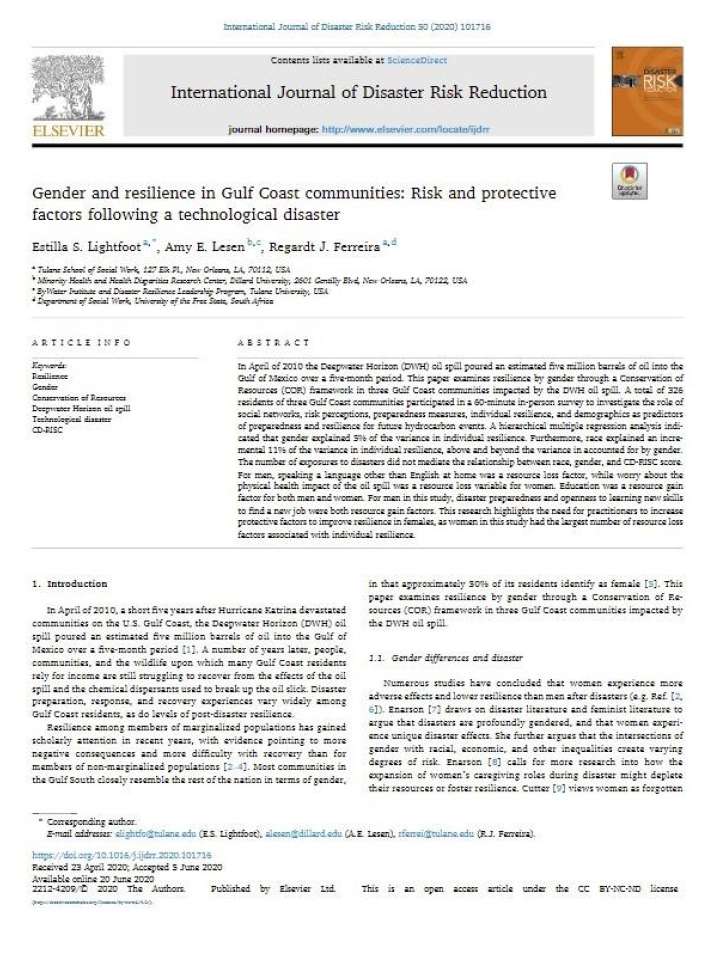Gender and resilience in Gulf Coast communities: Risk and protective factors following a technological disaster
In April of 2010 the Deepwater Horizon (DWH) oil spill poured an estimated five million barrels of oil into the Gulf of Mexico over a five-month period. This paper examines resilience by gender to investigate the role of social networks, risk perceptions, preparedness measures, individual resilience, and demographics as predictors of preparedness and resilience for future hydrocarbon events.
For men, speaking a language other than English at home was a resource loss factor, while worry about the physical health impact of the oil spill was a resource loss variable for women. Education was a resource gain factor for both men and women. For men in this study, disaster preparedness and openness to learning new skills to find a new job were both resource gain factors. This research highlights the need for practitioners to increase protective factors to improve resilience in females, as women in this study had the largest number of resource loss factors associated with individual resilience.
Explore further
